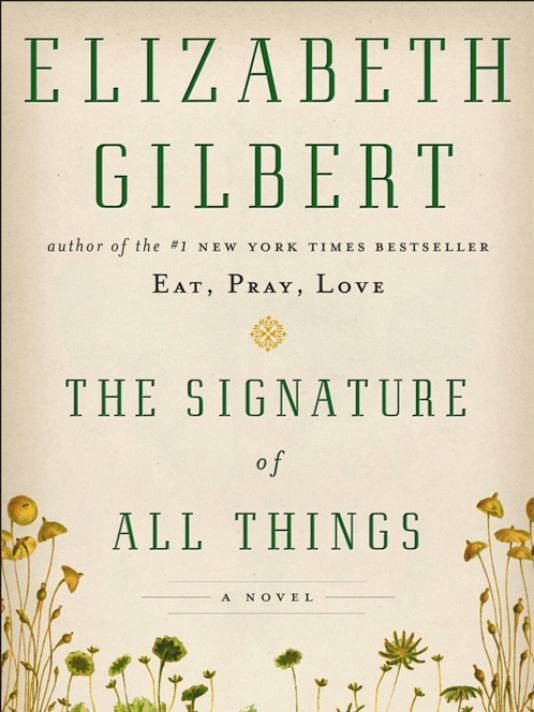By Sasha Moedt (The Cascade) – Email
Print Edition: July 16, 2014
The Signature of All Things is a sweeping novel of a woman’s life, spanning from 18th century Kew Gardens in London, to Cook’s journey through South America, a grand estate in Philadelphia, and finally to the wild colour and beauty of Tahiti. The scope is broad, but it focuses on the experiences and inner world of Alma Whittaker, the brilliant daughter of a wealthy and self-made man, Henry Whittaker.
Alma is born at the turn of the century. She holds inside her the spirit (and unfortunately, the physical features) of her father: “a right little dromedary, she was — tireless and uncomplaining. If her millstone of a mother had not steadfastly ground the impudence out of her, she might have turned out to be frankly rude. As it was, she was merely forceful.”
Alma has the determination, curiosity and work ethic of her father. She spends her childhood roaming White Acre, dissecting sheep heads, and exploring the forests, documenting her discoveries with careful precision. Her father no longer adventures, but is rich enough to bring the great explorers, natural philosophers, and academics to the White Acre dinner table, where Alma is allowed to listen and converse with them.
In raising Alma, Elizabeth Gilbert uses an engaging point by point style. It isn’t lyrical or sentimental, but a list of experiences that fits Alma’s straightforward nature. Romantic moments come from Alma’s mind through her experiences and thoughts.
Alma is insatiable for knowledge, but as she grows, her insatiability also includes the desire for companionship and love. Her companions are limited at White Acre, and she has not learned to engage in easy conversation. She is intense and straightforward. Things that cannot be examined, dissected, logged and logically understood — i.e. human behaviour — are difficult for Alma to understand. And as she craves companionship as she grows older, this confusion becomes frustrating.
Her desires naturally move to a physical longing that cannot be slaked. In a time when showing any sexuality is taboo, Alma becomes a detached scientist on the outside and a sensual, longing woman on the inside. And when an enigmatic man appears at White Acre, and Alma falls in love, she is thrown into an unfamiliar world of magic and spirituality. This meeting catalyses an adventure far away from White Acre, to the unexplored corners of the world.
At about 500 pages, The Signature of All Things is a hefty read. But Gilbert’s prose is — as we learned by the wild popularity of Eat, Pray, Love — very engaging. You don’t have to be having a midlife crisis to appreciate this novel, though.
The aspect that impressed me most in Signature was the research. The easy intimacy Gilbert displays with all aspects of the broad subject of 18th and 19th century natural philosophy (or, better known to us today as science) is a joy to read. Having read the good and bad of historical fiction, I can say that Signature is the epitome of what research should be like in a story: smooth, flawless, and fascinating.
Gilbert’s research includes the tricky subject of cultural mindset: for example, how did Europeans view the Holland in the 18th century? As a Dutch descendant on both sides who has wooden shoes by her front door and Delftware in her house, Gilbert’s description early on in the book made me laugh: “Industrious, tireless, ditch-digging beer-drinking, straight-speaking, coin-counting calvinists… [Holland was] a country of bankers, merchants and gardeners.” She got it dead-on, and from that point on I trusted the research.
The Signature of All Things is one of the best books of the year. It is about an incredible time in history — the age of discovery — with human passion thrown into the mix.



